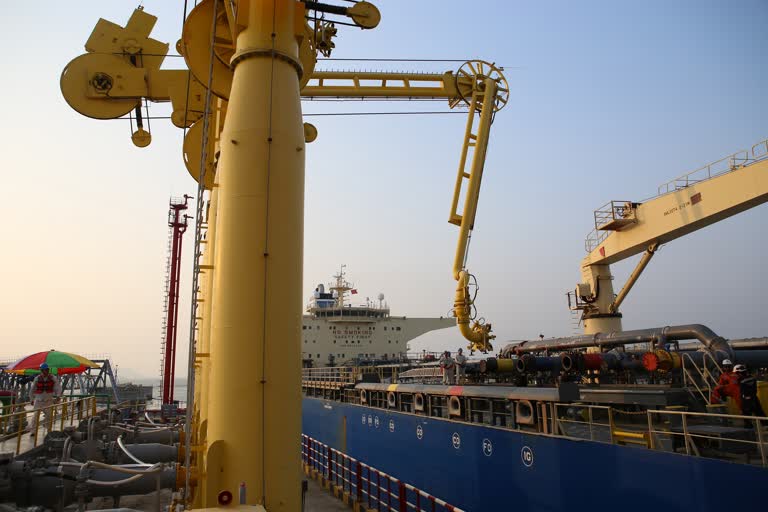Hyderabad: Global crude oil prices touched their highest level in the last six months. The Brent crude from the North Sea and West Texas Intermediate (WTI) from the United States of America-the two internationally preferred standards by the global investors to track the crude oil prices across the world, touched USD 74.70 and USD 66.10 respectively, on 23rd April 2019.
The trigger of this fresh round of rally in the crude oil prices is the decision of President Donald Trump to end the waivers that allow countries to import oil from Iran. Exemptions were granted by the U.S administration in November 2018 to eight countries to import oil from Iran, which include China, Greece, India, Italy, Japan, South Korea, Taiwan and Turkey.
However, these exemptions expire on May 2nd 2019 and with the latest decision of the United States these countries could not import oil from America’s arch-rival after this date. This development is expected to bring in a supply shortage of 1.2 million barrels of oil per day in the global markets.
Besides, the geo-political developments in Libya, Venezuela, and Nigeria are expected to cause further supply disruptions. These prospects of a further supply shortage contributed largely, to the present spike in the crude oil prices.
What is at stake for India?
As India meets its 80% crude oil needs through imports and Iran and Venezuela being the third and fourth largest oil exporters for us (as per the December 2017 data), changes in supply dynamics in these countries would adversely impact the fundamental of the Indian economy.
First, they would drive the inflation up, as costly petrol and diesel would result in higher transportation costs and also higher costs of production in the manufacturing sector.
As per the 2018 estimates of Nomura Holdings Inc., a $10 per barrel rise in crude oil prices would result in an increase of Wholesale Price Index inflation by around 1.3-1.4 percentage points and also could widen the annual current account balance by 0.4% of Gross Domestic Product.
Read more:India to stop importing oil from Iran; make up lost volumes from alternate sources
A higher level of inflation erodes the purchasing power of the common man and also drives up the input costs of the firms and manufacturing units. This squeezes their profits and could dampen the employment and economic growth prospects.
On the other hand, the rising crude oil prices will have a negative fallout on the fiscal and monetary policy management, by contracting the elbow room for the policy makers. In case of a persistent trend of rising crude oil prices, the RBI and the Government will have lesser space to follow an expansionary monetary policy and an accommodative fiscal policy. This in turn would impact the prospects of the country’s economic growth.
The way ahead -
Given the macroeconomic risks posed by rising crude oil prices, it is pertinent for the policy makers to consider the policy options that could potentially reduce or even offset the negative impacts.
First and foremost, it is important to reduce the price burden on the common man. Normally, the proposed solution is to go for subsidies on petrol and diesel prices. However, it would severely affect the balance sheets of the oil marketing companies.
Instead, it would be better to go for rationalization of taxes on petrol and diesel, which are exorbitantly high by any yardstick. The fact that Central and State taxes account for around 40% of selling prices of petrol and diesel underlines this urgent need.
However, as the oil subsidies is a short term arrangement to make fuel affordable, the government must explore long term solutions to tackle recurring fluctuations in global oil prices. There is a strong need to think of long term strategies and invest largely in the discovery of oil and its production.
Effective implementation of the Hydrocarbon Exploration and Licensing Policy (HELP) and further expansion of the recently launched Strategic Petroleum Reserve Programme would help to an extent. As India is the world’s fourth largest consumer and third largest importer of oil, the government must encourage home-grown companies to bid for oil blocks abroad and increase its investments in renewable energy.



